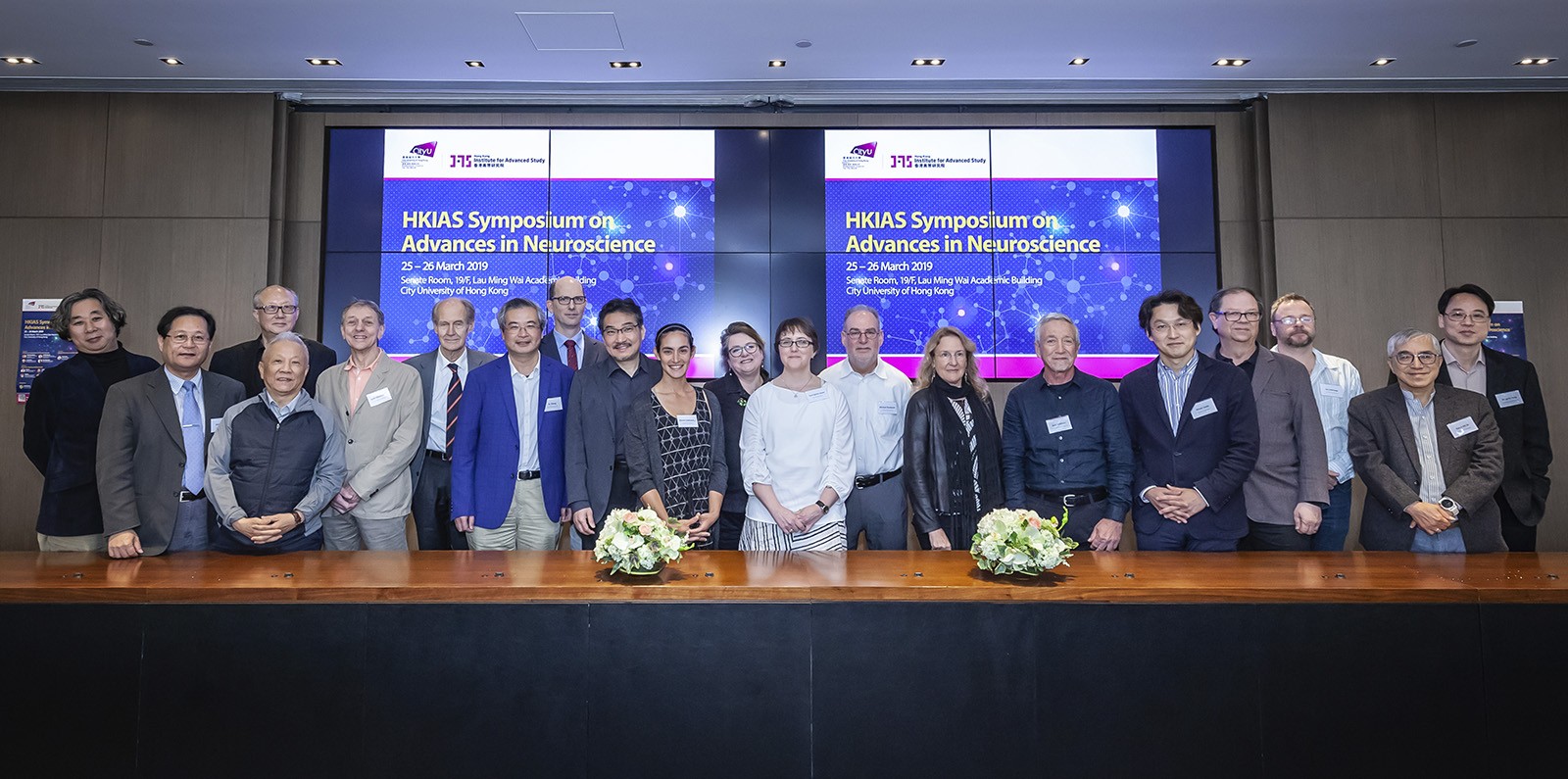World-class experts in the field of neuroscience shared ideas and research discoveries during a two-day symposium at City University of Hong Kong (CityU) from 25 to 26 March.
The symposium, organised by the Hong Kong Institute for Advanced Study (HKIAS), brought together 14 distinguished scholars including members of Academia Europaea, US National Academy of Sciences, Chinese Academy of Sciences, American Academy of Arts and Sciences and World Academy of Sciences; and distinguished professors from universities in North America, Europe, Japan, mainland China and Hong Kong.
Professor Tomas Hökfelt, Senior Fellow of HKIAS and Professor at the Karolinska Institutet, Sweden and one of the organisers of the symposium, gave the welcoming address at the opening ceremony, while Professor Sir Colin Blakemore, Senior Fellow of HKIAS and Yeung Kin Man Chair Professor of Neuroscience at CityU, said in his closing remarks that the symposium had provided a platform for discussing recent advances in modern neuroscience and exploration for new collaboration in the field. Professor He Jufang, Wong Chun Hong Chair Professor of Translational Neuroscience at CityU, was another of the organisers.
A group of world-leading neuroscientists, including Professor He; Professor Carol Barnes from the University of Arizona, US; Professor Nancy Ip from the Hong Kong University of Science and Technology; and Professor Tara Spires-Jones from the University of Edinburgh, UK, discussed the neural development and function of neural circuits at a session titled “Memory, Ageing and Dementia” on 26 March.
Professor Barnes delivered a lecture titled “Impact of Age on Neural Circuits Critical To Memory” that illustrated how the brain changes during the ageing process and explained that the functional consequences of these cell-specific changes were on information processing and memory.
Professor Ip shared recent research on two newly identified cell surface receptors as potential drug targets for Alzheimer’s disease in a lecture titled “Understanding Synaptic Dysfunctions in Alzheimer's Disease: Insights for Therapeutic Development”.
The symposium was well attended by hundreds of students, faculty members and guests from CityU and the public.





